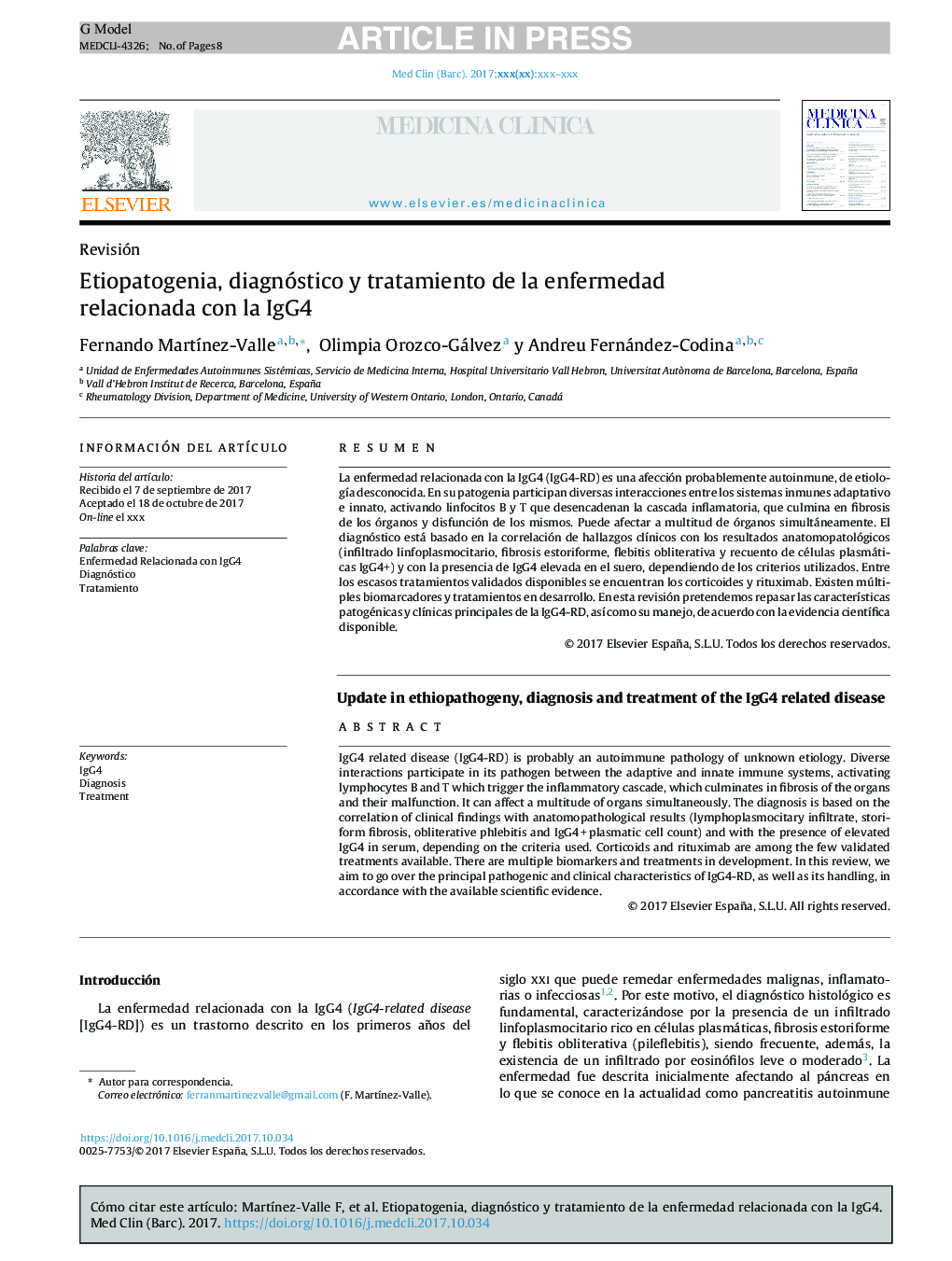| Article ID | Journal | Published Year | Pages | File Type |
|---|---|---|---|---|
| 8762343 | Medicina Clínica | 2018 | 8 Pages |
Abstract
IgG4 related disease (IgG4-RD) is probably an autoimmune pathology of unknown etiology. Diverse interactions participate in its pathogen between the adaptive and innate immune systems, activating lymphocytes B and T which trigger the inflammatory cascade, which culminates in fibrosis of the organs and their malfunction. It can affect a multitude of organs simultaneously. The diagnosis is based on the correlation of clinical findings with anatomopathological results (lymphoplasmocitary infiltrate, storiform fibrosis, obliterative phlebitis and IgG4Â +Â plasmatic cell count) and with the presence of elevated IgG4 in serum, depending on the criteria used. Corticoids and rituximab are among the few validated treatments available. There are multiple biomarkers and treatments in development. In this review, we aim to go over the principal pathogenic and clinical characteristics of IgG4-RD, as well as its handling, in accordance with the available scientific evidence.
Related Topics
Health Sciences
Medicine and Dentistry
Medicine and Dentistry (General)
Authors
Fernando MartÃnez-Valle, Olimpia Orozco-Gálvez, Andreu Fernández-Codina,
